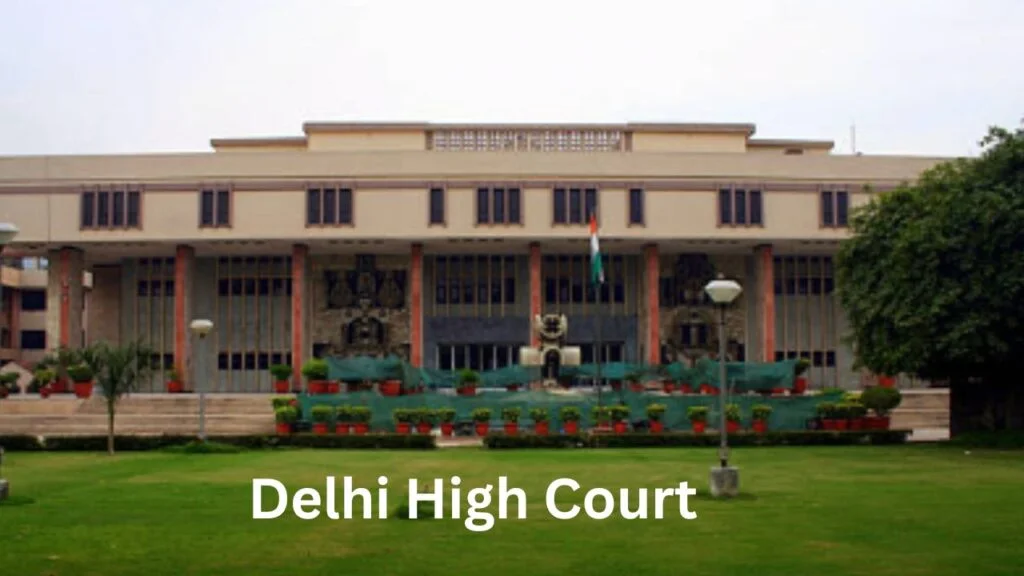Victim can evoke posh act when sexually harassed by a man working in other department than her own : Delhi HC
The decision further stated that any interpretation of the law that "downplays or impedes" the full attainment and implementation of its aims must be "firmly avoided "Equality of the sexes in all aspects of life is thus a constitutional imperative." Working environments must be as safe and secure for women as they are for men.

Victim can evoke posh act when sexually harassed by a man working in other department than her own, Delhi HC ordered in case of Dr. Sohail Malik v/s union of India & Anr.
The Delhi High Court has ruled that the scope of the Sexual Harassment of Women at Workplace (Prevention, Prohibition, and Redressal) Act, 2013 (POSH Act) extends beyond cases where a woman employee is sexually harassed by another employee working in her own office or department to cases where the delinquent employee is employed elsewhere.
A vacation bench of Justice C Hari Shankar and Justice Manoj Jain observed, in the case of Dr. Sohail Malik v/s union of India & Anr. after analyzing the Act and its objectives:
“Each and every one of these goals is clearly “harasser-neutral.” In an era in which women are equaling, if not outnumbering, men in professional achievements, there can be no compromise on any of these goals,” the Court writes.
The decision further stated that any interpretation of the law that “downplays or impedes” the full attainment and implementation of its aims must be “firmly avoided.”
“Equality of the sexes in all aspects of life is thus a constitutional imperative.” Working environments must be as safe and secure for women as they are for men. “Even a woman’s fear that her safety might be jeopardized or jeopardized at work is thus abhorrent to our constitutional ethos,” the decision ruled.
“There is absolutely nothing in the SHW Act that limits its scope only to cases where a woman employee is sexually harassed by another employee working in her own office, and excepts its application where the delinquent employee is employed elsewhere,” the statement continued.
The court was hearing a plea from a 2010 batch IRS official accused of sexually harassing an officer in a separate department, the Union Ministry of Consumer and Public Distribution’s Department of Food and Public Distribution.
The female employee filed a complaint with her own department’s Internal Complaints Committee, and the officer was summoned to a meeting with the ICC. However, the IRS officer filed a complaint with the Central Administrative Tribunal, questioning the ICC’s jurisdiction to investigate the woman employee’s complaint.
The officer’s case was dismissed by the Tribunal, forcing him to appeal to the High Court. Senior Advocate Arun Bharadwaj, who represented the petitioner officer, maintained that the Sexual Harassment of Women at Workplace Act does not apply unless sexual harassment occurs by a colleague in one’s own department.
According to the petitioner officer, the ICC of one department cannot undertake an inquiry under the Act on a complaint made by its officer against an employee of another department since he is not under the disciplinary supervision of the department where the complainant works.
According to the court, such an interpretation, as argued by the petitioner officer, would go to the heart of the Sexual Harassment at Workplace Act, as well as its ethos and philosophy.
“That said, there is some force in Mr Bharadwaj’s contention that the Court cannot rewrite the statute or provide casus omissus, and if the SHW Act cannot be read in such a way as to protect a woman working in one department of the Government from harassment by an officer or employee of another department, the Court may have to defer to the statute,” the court said.
The bench further noted that the Act does not shield individuals who sexually harass women in offices other than those in which they work from prosecution.
“Having read Section 11(1), we agree with the learned Tribunal’s finding that there is nothing in the said provision that would limit its application only to cases where the respondent, i.e., the officer accused of sexual harassment, is an employee of the department where the complainant works,” the court said.
“Thus seen, and given the breadth of the definition of employer in Section 2(m), we are of the considered opinion that, in order to make the provisions of the SHW Act meaningful and applicable even in a case where the alleged perpetrator of sexual harassment is an employee of another department, the definition of employer under Section 2(g)(i) of the SHW Act must be read as including the employer of the department where the alleged perpetrator of sexual harassment is an employee,” it continued.
The court dismissed the officer’s plea in limine, upholding the Tribunal’s decision, and ordered for hearing before the ICC.
- VerSe Innovation Appoints Rohit Sandal as Chief Human Resources Officer to Power Its Next Phase of Global Talent Transformation - July 28, 2025
- K Raheja Corp Launches ‘I-Lead’ to Develop Early Managers into Effective People Leaders Across its Group Companies - July 24, 2025
- Eastman Auto & Power Appoints Tilak Kapoor as President Human Resources - July 23, 2025








